Find Help
More Items From Ergsy search
-

Heart stents
Relevance: 100%
-
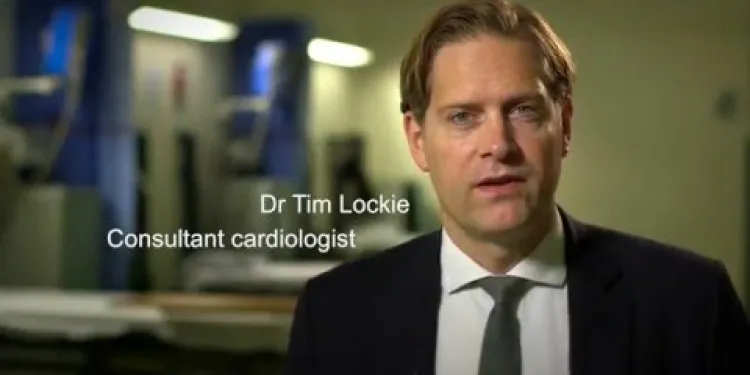
Introduction to coronary angiogram and stenting
Relevance: 69%
-
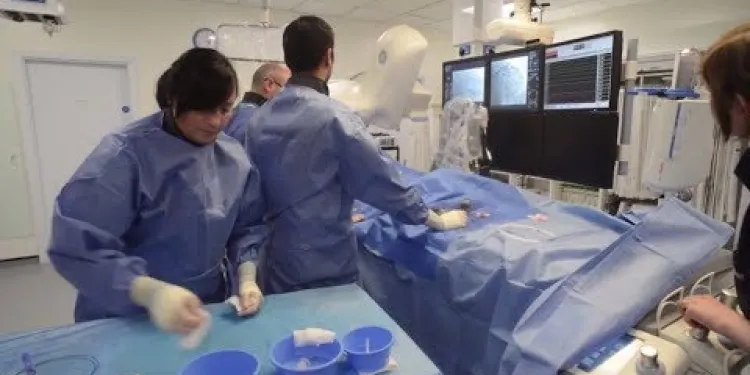
Heart attack care - Raigmore Hospital Inverness, NHS Highland
Relevance: 37%
-
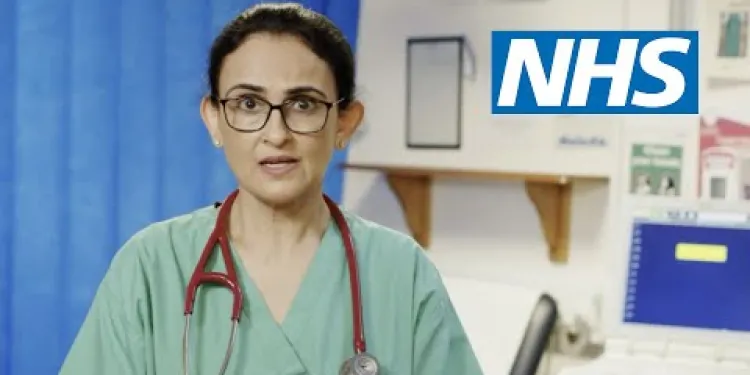
Heart Attack Stories | NHS
Relevance: 37%
-

Heart Failure : The normal heart
Relevance: 35%
-
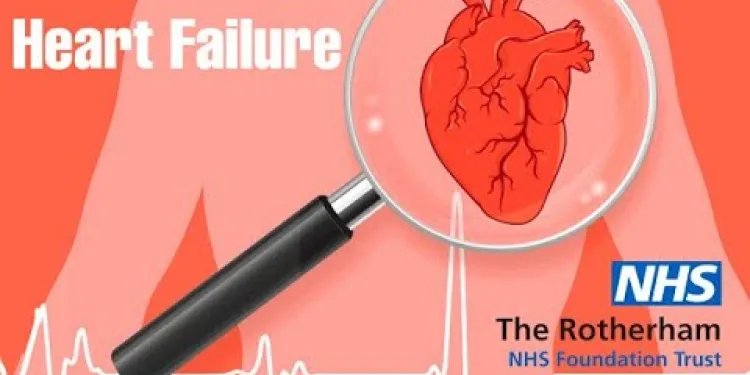
Heart Failure : What is heart failure?
Relevance: 34%
-
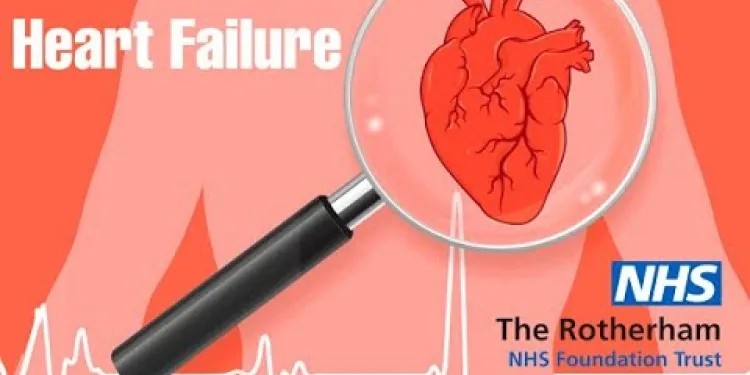
Heart Failure : Symptoms of heart failure
Relevance: 34%
-
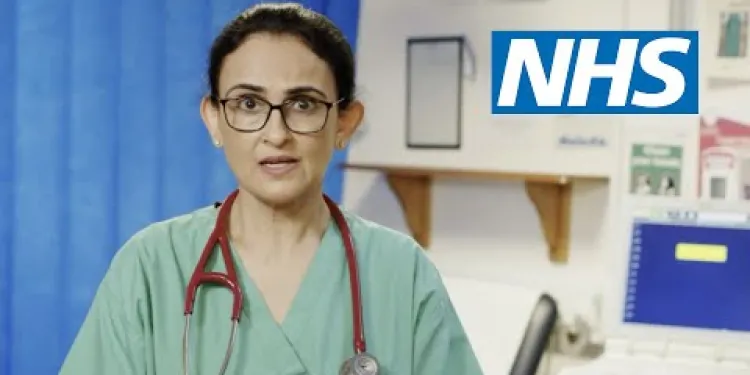
Heart Attack Stories | NHS
Relevance: 33%
-
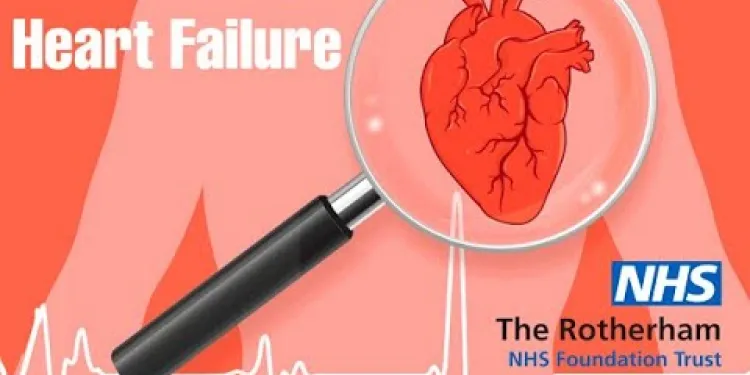
Heart Failure : When the heart becomes stiff?
Relevance: 33%
-
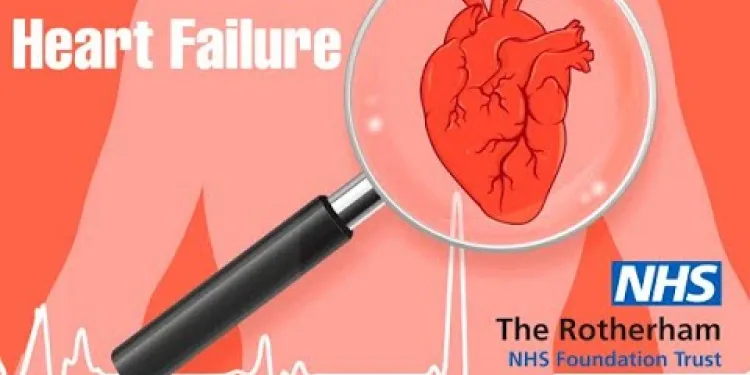
Heart Failure : Heart failure that cannot pump
Relevance: 33%
-
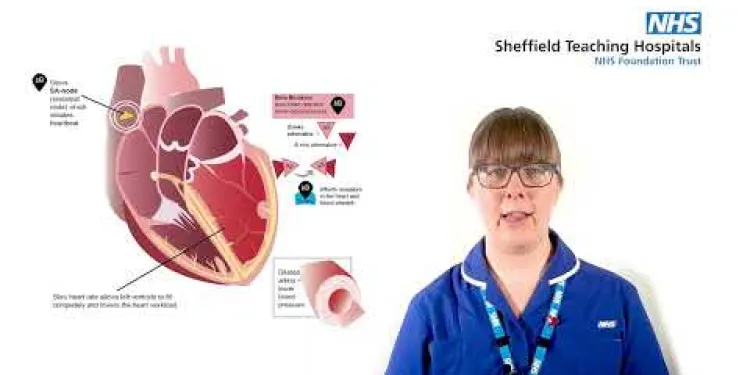
Medicines of the heart
Relevance: 33%
-

Will a heart bypass make me live longer?
Relevance: 32%
-

Heart failure introduction
Relevance: 31%
-

What causes heart failure?
Relevance: 30%
-
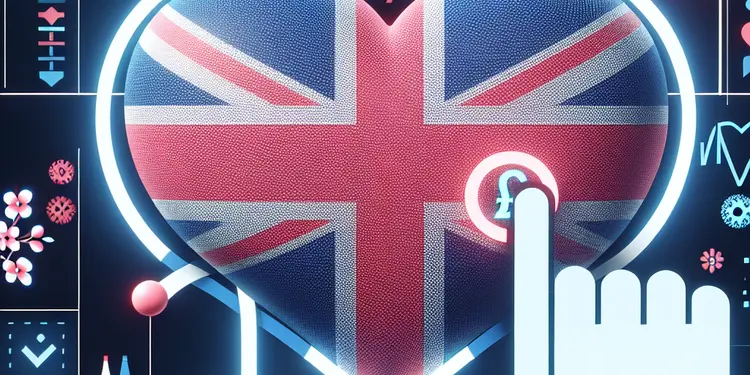
Are there different types of heart failure?
Relevance: 30%
-
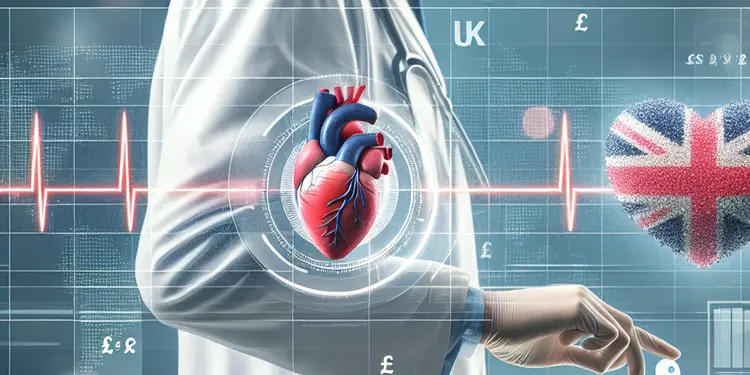
How is heart failure diagnosed?
Relevance: 30%
-

Can heart failure be prevented?
Relevance: 30%
-
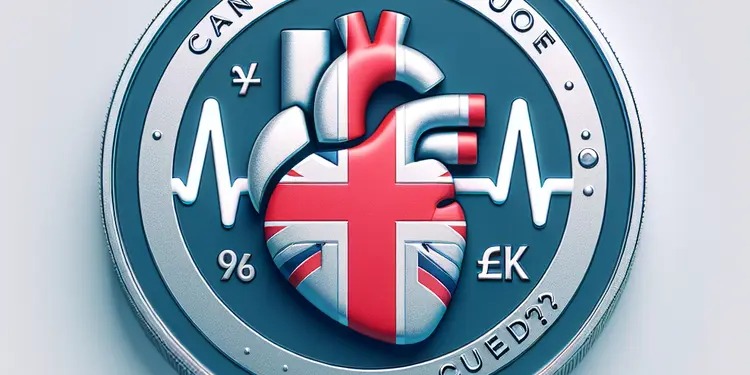
Can heart failure be cured?
Relevance: 30%
-
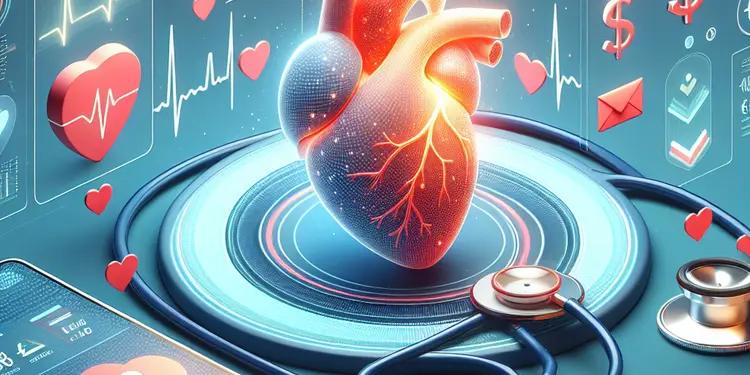
Is it possible to prevent a heart attack?
Relevance: 30%
-
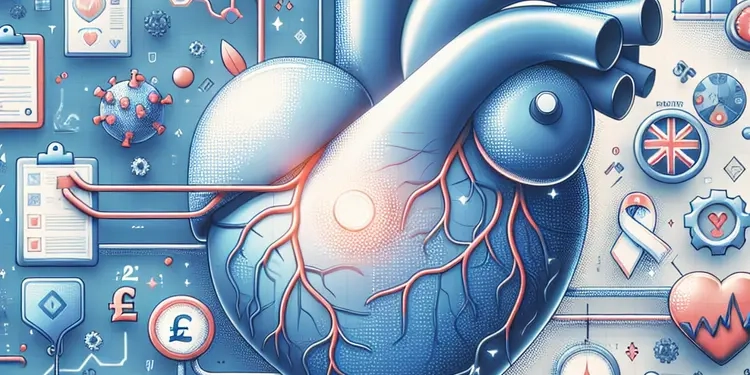
What is heart valve disease?
Relevance: 29%
-

Is my abnormal heart rhythm dangerous?
Relevance: 29%
-
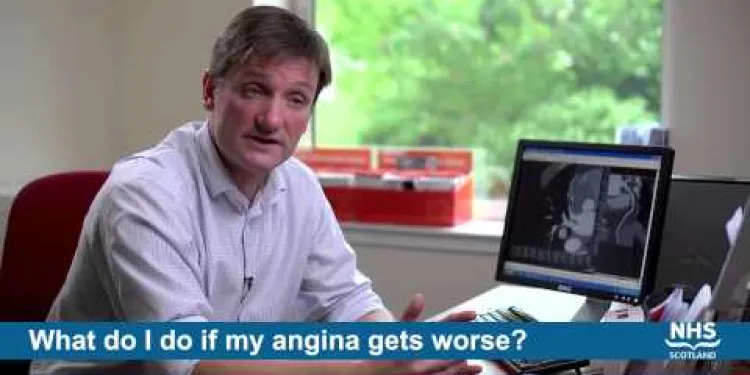
Intro to Angiograms, Angioplasty & Coronary Bypass Grafting
Relevance: 29%
-

Is my abnormal heart rhythm dangerous?
Relevance: 29%
-
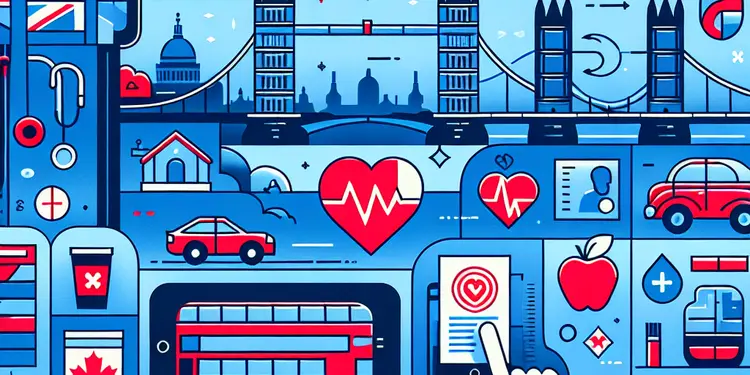
What are the risk factors for a heart attack?
Relevance: 28%
-
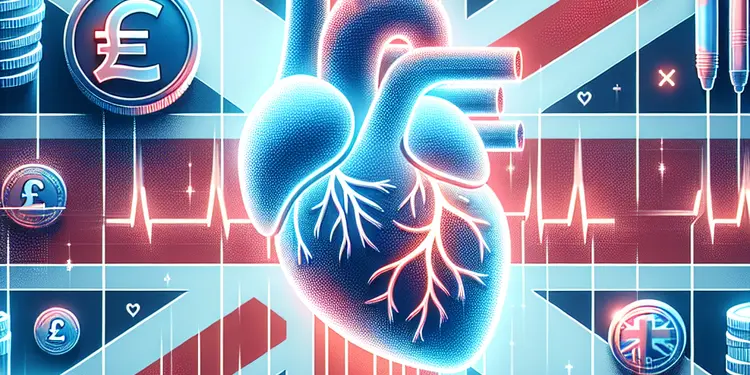
What are the long-term effects of a heart attack?
Relevance: 28%
-

What is the prognosis for someone with heart failure?
Relevance: 28%
-
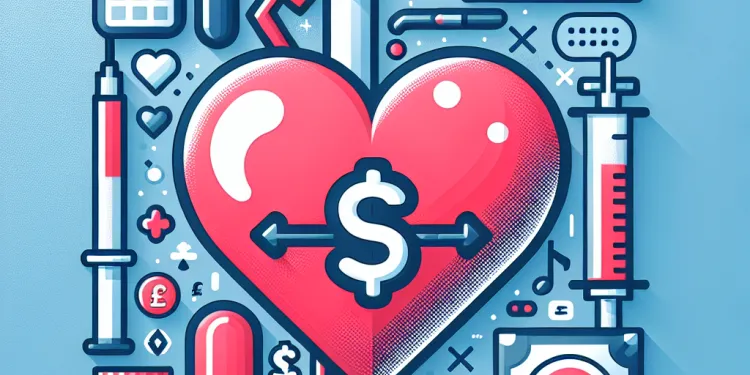
Is Baxdrostat used in treating heart failure?
Relevance: 28%
-
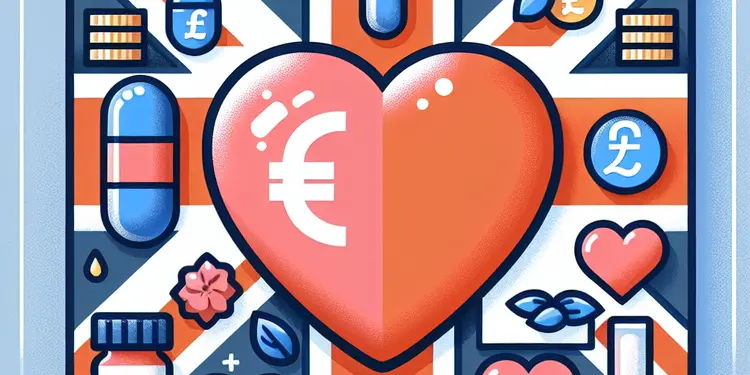
Are there specific fats that support heart health?
Relevance: 28%
-
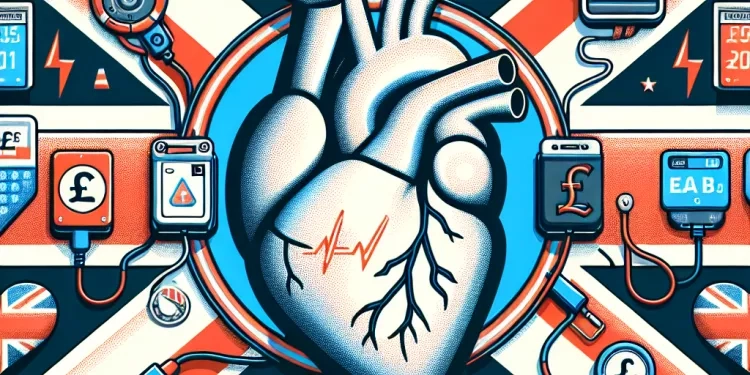
Can a defibrillator restart a stopped heart?
Relevance: 28%
-
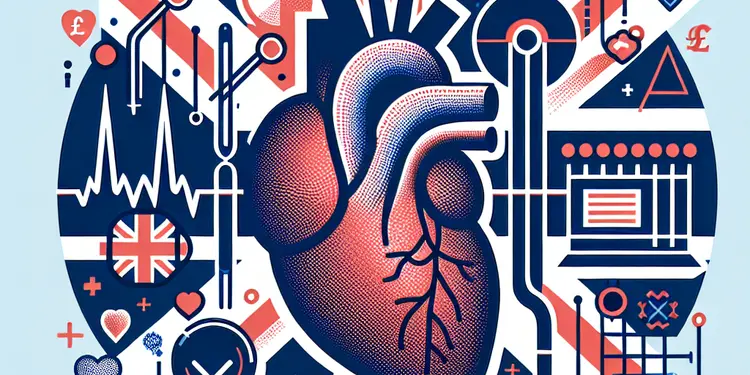
Can heart failure affect other organs?
Relevance: 27%
-

What is the role of diet in managing heart failure?
Relevance: 27%
-
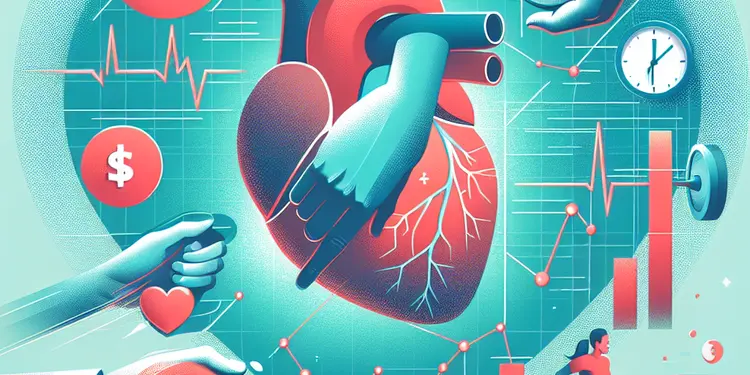
Can physical exertion trigger a heart attack?
Relevance: 27%
-
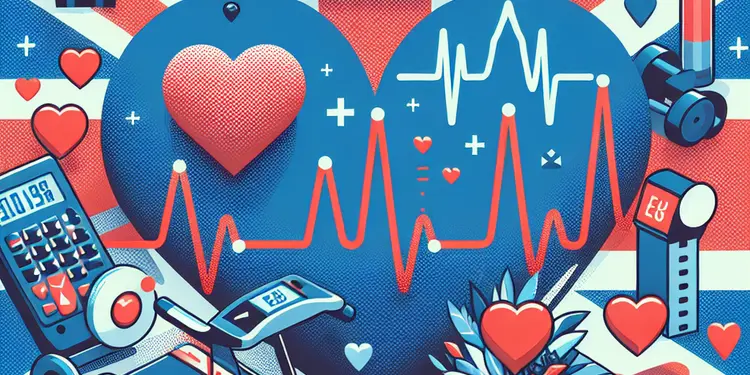
How does exercise impact heart failure?
Relevance: 27%
-
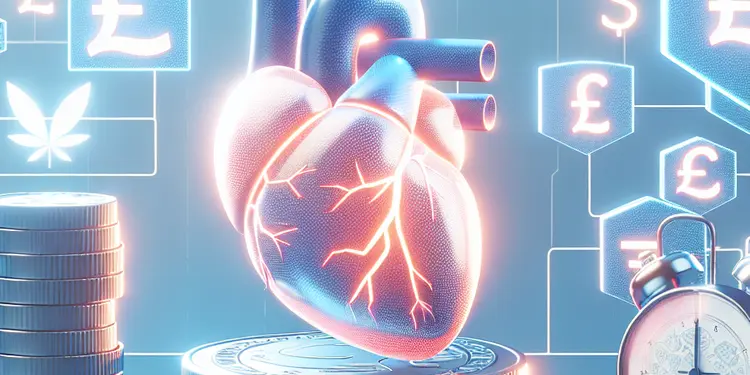
How do beta-blockers contribute to heart attack prevention?
Relevance: 27%
-

What medications are commonly prescribed for heart failure?
Relevance: 27%
-

Are heart attack symptoms different for people with diabetes?
Relevance: 27%
-

How long do heart attack symptoms last?
Relevance: 27%
-
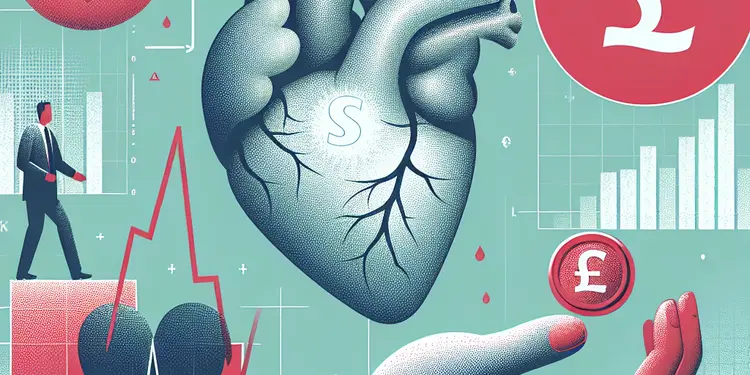
What should I do if I experience symptoms of heart failure?
Relevance: 27%
-
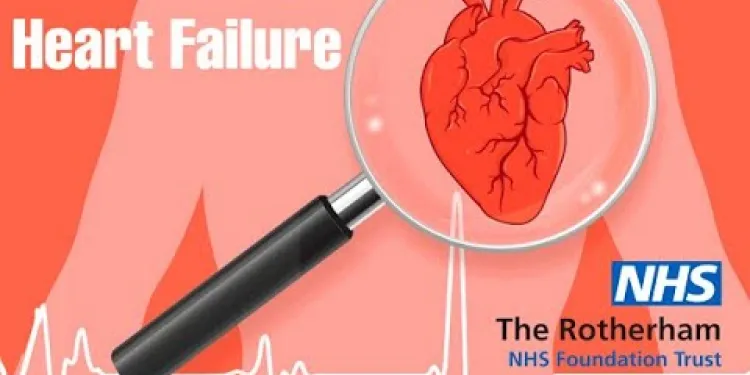
Heart Failure : Treatment and monitoring of fluid retention
Relevance: 27%
-
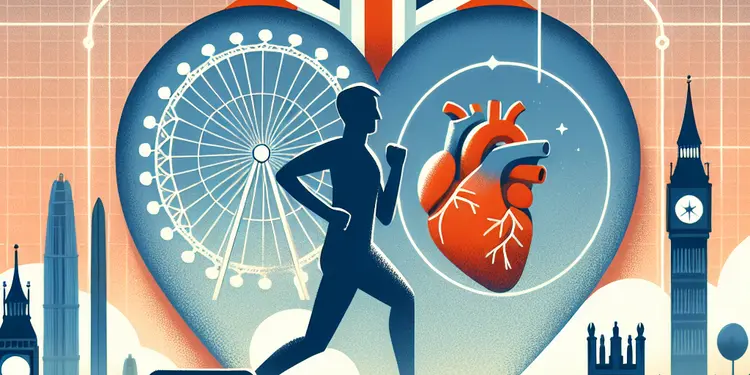
What should I do if I'm experiencing heart attack symptoms?
Relevance: 27%
Heart Stents
What Are Heart Stents?
Heart stents are tiny, expandable tubes used to keep arteries open and ensure proper blood flow to the heart. They are typically made of metal mesh and are inserted into coronary arteries during a procedure known as angioplasty. Heart stents are crucial for patients suffering from coronary artery disease, as they help to prevent heart attacks and alleviate symptoms such as chest pain.
How Are Heart Stents Inserted?
The insertion of heart stents is a minimally invasive procedure usually performed under local anaesthesia. A catheter with a deflated balloon at its tip is inserted into the artery through the groin or wrist. The catheter is then guided to the blocked area of the artery. Once in position, the balloon is inflated, expanding the stent and compressing the plaque against the artery wall. The balloon is then deflated and removed, leaving the stent in place to keep the artery open.
Types of Heart Stents
There are two primary types of heart stents: bare-metal stents (BMS) and drug-eluting stents (DES). BMS are made of metal and act merely as a scaffold to keep the artery open. DES, on the other hand, are coated with medication that helps reduce the risk of the artery re-narrowing. The choice between these often depends on the patient's specific condition and the cardiologist’s recommendation.
Recovery and Aftercare
After receiving a heart stent, patients in the UK generally need to stay overnight in the hospital for monitoring. Full recovery typically takes about a week. It's crucial to follow a heart-healthy lifestyle, including a balanced diet, regular exercise, and avoiding smoking. Additionally, taking prescribed medications to prevent blood clots is essential for stent patients to ensure long-term success.
Benefits and Risks
Heart stents offer significant benefits, such as relieving chest pain, improving blood flow, and reducing the risk of heart attacks. However, risks include bleeding at the catheter insertion site, artery damage, and, in rare cases, an allergic reaction to the stent material. Regular follow-ups with a cardiologist are essential to monitor and manage any potential complications.
Heart Stents
What Are Heart Stents?
Heart stents are small tubes that help keep blood vessels open. They make sure blood goes to the heart. Stents are usually made from metal and are put in during a treatment called angioplasty. People with heart problems need stents to stop heart attacks and help with chest pain.
How Are Heart Stents Inserted?
Putting in a heart stent is a small operation. Doctors give medicine to numb the area. They use a thin tube with a balloon on the end. The tube goes into the blood vessel through the leg or arm. Doctors guide it to the blocked area. The balloon is blown up to open the stent. The stent stays in place to keep the vessel open, and the balloon is taken out.
Types of Heart Stents
There are two kinds of heart stents: bare-metal stents (BMS) and drug-eluting stents (DES). BMS are plain metal and keep the vessel open. DES have medicine on them to help stop vessels from closing again. The doctor will choose the best stent for you.
Recovery and Aftercare
After getting a heart stent, you stay in the hospital overnight. It usually takes about a week to feel better. It is important to eat healthy food, exercise, and not smoke. You need to take medicine so blood clots do not form. This helps the stent work well.
Benefits and Risks
Heart stents have good points, like stopping chest pain and helping blood flow better. They also lower the chance of a heart attack. But, there are some risks, like bleeding, vessel damage, or rare allergic reactions. It is important to see your heart doctor often to check everything is okay.
Frequently Asked Questions
What is a heart stent?
A heart stent is a small mesh tube inserted into a blocked or narrowed coronary artery to help keep it open and ensure proper blood flow to the heart.
Why would I need a heart stent?
A heart stent is needed if you have a significant narrowing or blockage in your coronary arteries, which can lead to chest pain (angina) or a heart attack.
How is a heart stent inserted?
A heart stent is typically inserted during a procedure called angioplasty. A catheter with a balloon at its tip is guided to the blocked artery, where the balloon is inflated to expand the stent and open the artery.
Is the procedure for inserting a heart stent painful?
The procedure is generally not painful as it is performed under local anaesthesia and mild sedation. You may feel some pressure when the balloon is inflated.
How long does it take to recover from a heart stent procedure?
Recovery time varies, but most patients can return to normal activities within a week. Your doctor will provide specific guidelines based on your condition.
Are there any risks associated with heart stents?
As with any medical procedure, there are risks, including bleeding, infection, blood clots, and artery damage. However, these complications are relatively rare.
Will I need to take medication after receiving a heart stent?
Yes, you will need to take antiplatelet medication to prevent blood clots and possibly other medications like statins to manage cholesterol.
Can heart stents fail?
While heart stents are generally effective, there is a small risk of restenosis, where the artery becomes narrow again. Newer drug-eluting stents have reduced this risk.
Are there alternative treatments to heart stents?
Alternatives to heart stents include medication management, lifestyle changes, and, in some cases, coronary artery bypass grafting (CABG) surgery.
How long do heart stents last?
Heart stents are designed to be permanent, but their longevity can vary. Drug-eluting stents have been shown to last longer than bare-metal stents.
Can I undergo MRI if I have a heart stent?
Most modern heart stents are MRI-compatible. However, always inform your radiologist about your stent before the procedure.
Will having a heart stent affect my diet or lifestyle?
You may need to adopt a heart-healthy lifestyle, which includes a balanced diet, regular exercise, and avoiding smoking to prevent further heart issues.
Can I travel by air after receiving a heart stent?
Most patients can travel by air after a brief recovery period. Consult your doctor for specific recommendations based on your condition.
Will I need follow-up appointments after receiving a heart stent?
Yes, regular follow-up appointments with your cardiologist are essential to monitor your heart health and manage any potential complications.
How much does a heart stent procedure cost in the UK?
The cost of a heart stent procedure varies depending on whether it's performed privately or through the NHS. On the NHS, the procedure is typically covered, but private costs can vary.
What is a heart stent?
A heart stent is a tiny tube.
Doctors use it to keep blood flowing in your heart.
If your heart has a blocked path, a stent can help open it.
Think of it like a small straw that helps blood flow better.
Use pictures or videos to understand it more. You can ask someone for help too.
A heart stent is a tiny tube. Doctors put it in a blood vessel in the heart that is blocked or too narrow. It helps keep the blood flowing like it should.
Why might I need a heart stent?
A heart stent is a tiny tube. It helps keep your blood vessels open.
You might need a heart stent if your heart is not getting enough blood.
This can happen if your blood vessels are too narrow or blocked.
Your doctor might suggest a heart stent to help your heart work better.
Tools that can help include:
- Talking with your doctor.
- Using pictures or models to understand better.
- Listening to audio guides or videos about heart stents.
A heart stent is used when your heart's blood pipes (called arteries) are too narrow or blocked. This can cause chest pain or even a heart attack.
How do doctors put in a heart stent?
Doctors use a small tube called a stent to help keep heart blood vessels open.
Here's how they do it:
- Doctors put a thin tube into a blood vessel in your arm or leg.
- They move the tube to your heart using special tools.
- A tiny balloon on the tube helps stretch the narrow part of the blood vessel.
- Doctors then leave the stent in place to keep the vessel open.
- The tube and balloon are taken out.
If you find this hard to read, ask someone to explain it to you, or use a tool that reads text out loud.
A heart stent helps blood flow in a blocked artery. Doctors put it in during a special treatment called angioplasty. They use a thin, soft tube with a tiny balloon at the end. They guide the tube to where the artery is blocked. Then they blow up the balloon to make the stent bigger and open the artery.
Does getting a heart stent hurt?
Getting a heart stent might seem scary. But doctors help make it as easy as they can.
Doctors give you medicine to help you relax and not feel pain. Some people feel a little pressure, but it doesn't usually hurt much.
If you are worried, talk to your doctor. They can help answer questions and make you feel better.
It can also help to have someone with you, like a family member or friend. They can support you and help you feel safe.
This is not usually painful because medicine helps you not feel it and makes you sleepy. You might feel a little push when they blow up the balloon.
How long does it take to feel better after a heart stent procedure?
A heart stent helps blood flow better in the heart. You might feel tired or sore after the procedure.
Most people start to feel better in a few days. It can take up to a week to feel normal again.
Here are some tips to help you recover:
- Rest and take it easy.
- Follow your doctor's advice.
- Ask for help if you need it.
- Use tools like a timer to remind you to take medicine.
- Write down when you take your medicine in a notebook.
How long it takes to feel better can be different for each person. Most people can go back to normal things in about a week. Your doctor will tell you what you should do to get better based on how you are feeling.
Do heart stents have any risks?
Heart stents can help open up blocked blood vessels. But, sometimes there can be risks or problems. Here are some simple steps to understand and manage them:
- Talk to Your Doctor: Ask your doctor questions. They can tell you what to expect.
- Be Aware: Learn about symptoms to watch out for, like chest pain or feeling dizzy.
- Follow Instructions: Take any medicine your doctor gives you.
- Use Pictures: Look at pictures or videos about stents to help you understand.
- Family Support: Talk with family or friends about your feelings or worries.
These tips can help you feel safe and know more about heart stents.
When doctors do operations, there can be problems like bleeding, getting an infection, blood clots, or hurting an artery. But these problems do not happen very often.
Will I need to take medicine after getting a heart stent?
If you have a heart stent, you might need to take medicine. This medicine helps keep your heart healthy. It stops your blood from getting sticky and making clots.
Talk to your doctor about the medicine. They will tell you what is best for you.
Here are some tips to help you:
- Ask your doctor or nurse to write down your medicine plan.
- Use a pill box to help you take your medicine on time.
- Set reminders on your phone.
- Tell someone you trust about your medicine plan, so they can help you remember.
Yes, you need to take medicine to stop blood clots. You might also need medicine for cholesterol. Cholesterol is a kind of fat in your blood.
Can heart stents stop working?
A heart stent is a tiny tube a doctor puts in your heart to help blood flow better. Sometimes, stents can stop working well.
Here are some things that can help understand and support:
- Ask your doctor for more information about stents.
- Use pictures or models to learn about how stents work.
- Write down any questions you have for your doctor.
- Talk to someone who had a stent and ask them about it.
Heart stents help keep your arteries open. This makes it easier for blood to flow. But sometimes, the artery can get narrow again. This is called restenosis. New stents have medicine in them that help stop this from happening.
If you have trouble understanding this, using pictures or videos might help. Ask someone you trust to explain it to you. Reading together can make it easier.
Are there other ways to help the heart besides stents?
Some people use different ways to help their heart instead of stents. Here are other treatments to think about:
- Healthy Eating: Eating good food can make your heart strong. Try to eat fruits, vegetables, lean meats, and whole grains.
- Exercise: Moving your body helps your heart. Go for walks, ride a bike, or play outside.
- Medicine: Doctors might give you medicine to help your heart. Always take medicine how the doctor says.
- Relaxation: Being calm and relaxed is important. Try deep breathing or listening to calming music.
Talk to your doctor before trying new things for your heart. Your doctor can help you decide what is best.
There are other ways to help a heart instead of using stents. These include taking medicine, changing how you live, and sometimes having a special heart surgery called coronary artery bypass grafting (we can call it CABG).
How long do heart stents last?
A heart stent is a tiny tube. It helps keep blood flowing to the heart. Doctors use it if there is a blockage in the heart.
Heart stents can last a long time. But how long they last can be different for each person. Many stents work well for years.
To keep your stent working well, eat healthy foods and exercise. See your doctor regularly too.
Talk to your doctor if you have questions. Your doctor can help you understand more about your stent.
Heart stents help keep blood flowing in your heart. They usually stay in your body forever. Some stents with special medicine last longer than others without it.
If you find reading hard, try using a ruler or your finger to help follow the words. You can also try reading with someone else.
Can I have an MRI if I have a heart stent?
An MRI is a big machine that takes pictures inside your body. A heart stent is a small tube placed in your heart to help blood flow.
If you have a heart stent, you might still be able to have an MRI. You should ask your doctor first. They will know what is safe for you.
Tools to help:
- Ask a family member or friend to go with you to the doctor.
- Make notes of any questions you want to ask.
- Use a phone or tablet to write down what the doctor says.
Most heart stents today are safe to use with an MRI. But you should always tell your doctor about your stent before you have an MRI scan.
Will having a heart stent change what I eat or how I live?
A heart stent is a small tube that helps keep your heart healthy. Here are some tips to help you:
- Eat healthy foods: Try to eat fruits, vegetables, and whole grains. These are good for your heart.
- Be active: Do some exercise every day, like walking or playing outside. It helps keep your heart strong.
- Follow doctor’s advice: Your doctor knows what’s best for you. Listen to their advice about eating and exercise.
- Use helpful tools: You can use a food diary or an activity tracker to remember what you eat and do each day.
You can take care of your heart by doing a few things. Eat healthy foods, exercise often, and don't smoke. These things can help keep your heart safe and strong.
Can I fly on a plane after getting a heart stent?
If you have a heart stent, you might wonder if it's safe to fly. A heart stent is a small tube that helps blood flow better in your heart.
Here are some things to think about:
- Talk to your doctor before you fly. They can tell you if it is safe for you.
- Make sure you feel well and strong enough to travel.
- Take any medicines your doctor gave you.
- You might need extra help at the airport. Ask for help if you need it.
To help you understand better, you can:
- Ask someone you trust to explain things to you.
- Use pictures or videos to learn more.
If you follow these steps, you can stay safe and enjoy your trip!
Most people can fly on a plane after resting for a little while. Ask your doctor for advice that is just right for you.
Will I have to see the doctor again after getting a heart stent?
Here is what happens:
- Yes, you need to see the doctor again.
- This is called a follow-up visit.
- The doctor will check your heart.
- They make sure you are healing well.
Helpful things:
- Ask your doctor questions if you are unsure.
- Bring a friend or family member to help remember things.
- Use a calendar to mark your next visit.
Yes, it's very important to see your heart doctor regularly. This helps them check your heart and keep you healthy.
How much money does a heart stent procedure cost in the UK?
A heart stent is a tiny tube that helps keep blood flowing in your heart. Here is some simple information about how much it costs:
- The cost of a heart stent procedure can be different for each person. It depends on where you get it done and your health needs.
- In the UK, the National Health Service (NHS) might cover the cost if you qualify for treatment.
- If you have a private health plan or pay yourself, it could cost several thousand pounds.
If you find it hard to understand this information, you might ask someone you trust to explain it, like a family member or a friend. You could also use a computer program that reads the text aloud to you.
The cost of putting in a heart stent can be different. It depends on where you have it done. If you have it done by the NHS, the cost is usually covered. But if you go private, it can cost more.
Useful Links
This website offers general information and is not a substitute for professional advice.
Always seek guidance from qualified professionals.
If you have any medical concerns or need urgent help, contact a healthcare professional or emergency services immediately.
Some of this content was generated with AI assistance. We’ve done our best to keep it accurate, helpful, and human-friendly.
- Ergsy carfully checks the information in the videos we provide here.
- Videos shown by Youtube after a video has completed, have NOT been reviewed by ERGSY.
- To view, click the arrow in centre of video.
- Most of the videos you find here will have subtitles and/or closed captions available.
- You may need to turn these on, and choose your preferred language.
- Go to the video you'd like to watch.
- If closed captions (CC) are available, settings will be visible on the bottom right of the video player.
- To turn on Captions, click settings .
- To turn off Captions, click settings again.
More Items From Ergsy search
-

Heart stents
Relevance: 100%
-

Introduction to coronary angiogram and stenting
Relevance: 69%
-

Heart attack care - Raigmore Hospital Inverness, NHS Highland
Relevance: 37%
-

Heart Attack Stories | NHS
Relevance: 37%
-

Heart Failure : The normal heart
Relevance: 35%
-

Heart Failure : What is heart failure?
Relevance: 34%
-

Heart Failure : Symptoms of heart failure
Relevance: 34%
-

Heart Attack Stories | NHS
Relevance: 33%
-

Heart Failure : When the heart becomes stiff?
Relevance: 33%
-

Heart Failure : Heart failure that cannot pump
Relevance: 33%
-

Medicines of the heart
Relevance: 33%
-

Will a heart bypass make me live longer?
Relevance: 32%
-

Heart failure introduction
Relevance: 31%
-

What causes heart failure?
Relevance: 30%
-

Are there different types of heart failure?
Relevance: 30%
-

How is heart failure diagnosed?
Relevance: 30%
-

Can heart failure be prevented?
Relevance: 30%
-

Can heart failure be cured?
Relevance: 30%
-

Is it possible to prevent a heart attack?
Relevance: 30%
-

What is heart valve disease?
Relevance: 29%
-

Is my abnormal heart rhythm dangerous?
Relevance: 29%
-

Intro to Angiograms, Angioplasty & Coronary Bypass Grafting
Relevance: 29%
-

Is my abnormal heart rhythm dangerous?
Relevance: 29%
-

What are the risk factors for a heart attack?
Relevance: 28%
-

What are the long-term effects of a heart attack?
Relevance: 28%
-

What is the prognosis for someone with heart failure?
Relevance: 28%
-

Is Baxdrostat used in treating heart failure?
Relevance: 28%
-

Are there specific fats that support heart health?
Relevance: 28%
-

Can a defibrillator restart a stopped heart?
Relevance: 28%
-

Can heart failure affect other organs?
Relevance: 27%
-

What is the role of diet in managing heart failure?
Relevance: 27%
-

Can physical exertion trigger a heart attack?
Relevance: 27%
-

How does exercise impact heart failure?
Relevance: 27%
-

How do beta-blockers contribute to heart attack prevention?
Relevance: 27%
-

What medications are commonly prescribed for heart failure?
Relevance: 27%
-

Are heart attack symptoms different for people with diabetes?
Relevance: 27%
-

How long do heart attack symptoms last?
Relevance: 27%
-

What should I do if I experience symptoms of heart failure?
Relevance: 27%
-

Heart Failure : Treatment and monitoring of fluid retention
Relevance: 27%
-

What should I do if I'm experiencing heart attack symptoms?
Relevance: 27%


